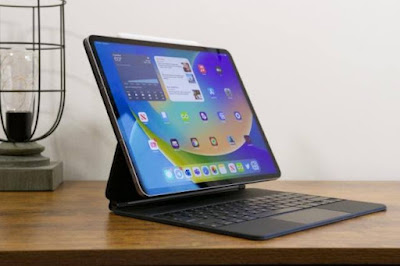Acer and Asus are among the manufacturers of Chromebook Plus laptops that will receive the Gemini and AI features from Google's other devices. Google made this announcement on Tuesday. Upcoming Chromebook Plus laptops like this ones will offer new capabilities including generative AI-powered personalized wallpaper creation and Google's "Help me write" tool. It has also begun to emerge on older Android smartphones. Magic Editor on Google Photos is coming to Chromebook Plus as well.
It is not surprising to find Gemini integrated into Chromebook Plus, which is typically a more powerful (and more costly) Chromebook, as the firm had previously stated it would combine Gemini with the Chrome desktop browser. For quicker and more convenient access, Google added the Gemini symbol to the app shelf. Additionally, it is providing a complimentary 12-month subscription to Google One AI Premium, which grants users access to Gemini Advanced, 2TB of cloud storage, and Gemini integration with Docs, Sheets, Slides, and Gmail, to anyone purchasing a new Plus laptop.
Additionally, Google is releasing new features that are compatible with both the standard Chromebook and the Chromebook Plus. These features include the ability to create GIFs from screen recordings, a built-in view of Google Tasks, and a QR code setup process that allows your Android phone to share your Wi-Fi and login credentials with your new Chromebook.
Throughout the remainder of the year, Google has promised to add more functionality to ChromeOS for Chromebook Plus devices. That includes Gemini's "Help me read," which is intended to summarize PDFs and respond to follow-up queries, and the company's AI face and gesture tracking system, "Project Gameface," which was made available to Android developers earlier in May. Additionally, Chromebook Plus devices will come with a new Focus feature that includes the ability to share open windows and programs across all of your devices, independent of operating system, as well as a Do Not Disturb mode.




















.jpeg)






.jpeg)



.jpeg)








